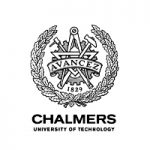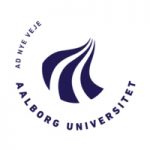项目介绍
The Doctor of Philosophy (PhD) Program aims at developing and strengthening students’ skills in identifying key issues related to environmental engineering, in formulating original research plans and methodologies, and in implementing those plans and methodologies to produce results that are useful for reducing environmental pollution and advancing environmental conservation and sustainable development. A candidate for a PhD degree is expected to demonstrate mastery of knowledge in the chosen discipline and to synthesize and create new knowledge, making an original and substantial contribution to the discipline.
On successful completion of the PhD program, graduates will be able to:
- Acquire advanced knowledge in science on which environmental engineering research and practice are based;
- Acquire the ability to independently and ethically plan and conduct experiments, produce original experimental data and analyze and interpret the results;
- Acquire and further enhance an ability to develop and apply modern engineering and scientific tools effectively and efficiently for analysis, design, research and communication;
- Develop an ability to identify and formulate environmental engineering problems, and propose feasible solutions with an appreciation of their underlying assumptions, uncertainties, constraints, and technical limitations within a multidisciplinary research environment;
- Develop technical competency to analyze and design environmental engineering components and systems, with an in-depth understanding of the principles behind the design methodologies
- Contribute cutting edge knowledge in environmental engineering and demonstrate the ability to evaluate one’s own contribution to the field; and
- Develop an ability to teach a subject, communicate and present ideas effectively, including oral, written, and technical writing skills, and to function effectively within and among teams with a variety of backgrounds and interests.
The Environmental Engineering (EVNG) Program offered by the School of Engineering at HKUST is one of the most successful interdisciplinary research programs in this field of study, with the following research foci and state-of-the-art facilities.
Research Foci
The program focuses on innovative technologies for different applications in the environmental engineering area and seeks to provide research students with an understanding of effective environmental management strategies.
The main research areas include:
- Innovative Water and Wastewater Treatment Technologies;
- Solid/ Hazardous Waste Management and Waste Recycling/ Reuse;
- Contaminated Land and Groundwater Remediation;
- Indoor and Outdoor Air Quality;
- Environmental Sustainability and Renewable Energy.
Facilities
The facilities of the Environmental Engineering Laboratories are divided into standard instruments and advanced stationary equipment, as required for different environmental studies. Standard instruments can provide accurate measurements of routine environmental analyses, such as DO, pH, COD, BOD5, ORP, salinity, conductivity, and turbidity.
Advanced equipment includes: a FTIR system with MIR and DTGS detectors for the analyses of functional groups in solid or non-aqueous liquid samples, total organic halogen with ion chromatography system to measure the amount of TOX in liquid or solid samples, UV/ Vis spectrophotometer for measuring absorbance or transmittance of liquid samples, florescence spectrometer for analyzing luminescence samples, programmable tube furnace with three control zones for various degree of combustion of different materials, and BET system for the characterization of surface area and pore volume of solid samples.
A relevant central facility is the Material Characterization and Preparation Facility comprising 10 main research groups: surface science, electron microscopy, scanning probe microscopy, x-ray diffraction, nuclear magnetic resonance, thin film deposition, optical characterization, electrical and magnetic characterization, thermal analysis, and sample preparation. Each research group houses state-of-the-art multidisciplinary instrumentation, supported by a team of experienced staff. Major items include X-ray diffraction systems, transmission electron microscopes, scanning electron microscopes, thin film sputtering and evaporation systems, a multi-technique surface analysis system (XPS Auger, ISS), a TOF-SIMS system, a Dynamic SIMS system, scanning probe microscopes (STM, AFM and MFM), FTIR/ Raman spectrometers, thin film measurement systems, thermal analysis instruments.
To qualify for admission, applicants must meet all of the following requirements. Admission is selective and meeting these minimum requirements does not guarantee admission.1. General Admission Requirements of the University
- Applicants seeking admission to a master’s degree program should have obtained a bachelor’s degree from a recognized institution, or an approved equivalent qualification;
- Applicants seeking admission to a doctoral degree program should have obtained a bachelor’s degree with a proven record of outstanding performance from a recognized institution; or presented evidence of satisfactory work at the postgraduate level on a full-time basis for at least one year, or on a part-time basis for at least two years.
2. English Language Admission Requirements
Applicants have to fulfill English Language requirements with one of the following proficiency attainments:
- TOEFL-iBT: 80*
- TOEFL-pBT: 550
- TOEFL-Revised paper-delivered test: 60 (total scores for Reading, Listening and Writing sections)
- IELTS (Academic Module): Overall score: 6.5 and All sub-score: 5.5
* refers to the total score in one single attempt
Applicants are not required to present TOEFL or IELTS score if
- their first language is English, or
- they obtained the bachelor’s degree (or equivalent) from an institution where the medium of instruction was English.
联系方式
电话: +852 2358 8888相关项目推荐
KD博士实时收录全球顶尖院校的博士项目,总有一个项目等着你!






